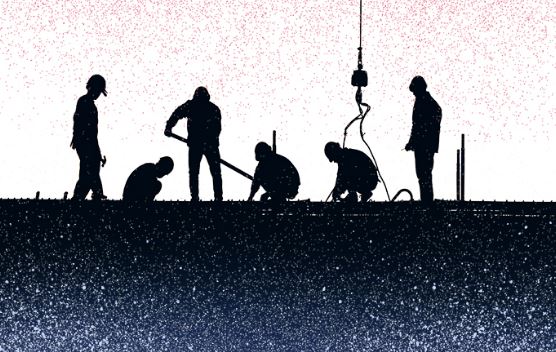Modern Slavery in Construction Supply Chains Dissertation
There is recognition that the UK construction industry is a danger sector for harbouring Modern Slavery abuses. While contractors are unlikely to be directly employing any slave labour, complex supply chain systems, can be found to be hiding a wide range of abuses. The UK government has already issued the Modern slavery act 2015 which provides a legislative means to deal with modern slavery perpetrators.

This dissertation investigates how contractors can eliminate the problem by successfully detecting (i.e. Identify, trace and eliminate) Modern slavery construction supply chains. In a critical review of the literature, the challenges of slavery to supply chain management are conceptualised, focusing on what makes construction a vulnerable industry. The paper then presents the findings from an extensive programme of interviews with UK Industry and labour welfare groups, which investigate the issues surrounding modern slavery in the UK and help obtain an understanding of the role contractors can play in the elimination of modern slavery within the supply chain. Eventually proposing a multi-stakeholder system contractors’ can implement to detect slavery.
This aim is broken down into the below dissertation objectives which guides the research:
- Understand state of the art knowledge on MS and how it relates to the UK construction industry
- Determine how well the industry has responded to the 2015 MS Act
- Identify the challenges to detecting MS in multi-layered supply chains used by contractors
- Assess the current MS detection methods used by contractors and identify which are most successful
- Develop proposals on how contractors can improve their detection of MS in construction supply chains
Dissertation Contents
1 – Introduction
Background to the problem
Rationale
Aim
Objectives
Research overview and approach
2 – Literature Review
Definitions
The construction industry
Supply chain management
Traditional Slavery
MS and labour exploitation
Constituents of slavery
Migrant workers
Forced labour
Human Trafficking
Bonded Labour
The problem
Employment and the slavery business model
The Informal Economy
Traceability, Transparency and Multi-layer Supply Chains
Current Solutions
Legislation
Detectors
Prevention and Compliance
3 – Research Methodology
What is research
Narrowing the research topic
Literature review
Rationale
Sources
Research strategies (quantitative and qualitative)
Discounted Strategies
Data collection approach
Interview
Structure
Interview design
Development and Piloting
Sample Selection
Thematic Data analysis Method
Ethics and risks
4 – Data Collection
Background
Understanding the scope of MS
Awareness of MS
Prevalence of MS in Construction
Contractor responsibility
Impact of the 2015 MS Act
Vulnerabilities in the industry
Industry characteristics contributing towards vulnerability
Future MS detection techniques
Difficulties in detecting MS
Mechanisms For Detection and Prevention
5 – Discussion
The Understanding and Awareness of Modern Slavery
Collaboration and Supply Chain Relationships
Effective detection techniques
Impact of legislation
6 – Conclusions and Recommendations
Project overview
Key findings
Recommendations to the industry (contractors)
Limitations to research
Recommendations for further research
References
Appendix
Access This Dissertation Here: Modern Slavery Construction Supply Chains Dissertation
Relevant Posts
Construction Dissertation Topics
New Rules of Measurement Construction
I do hope you enjoyed reading this post on identifying and eradicating modern slavery in construction supply chains. There are many other titles available in the construction dissertation collection that should be of interest to construction management students and building professionals. There are many dissertation titles that relate to other aspects of construction such as project management techniques, environmental management, building and construction methods to name a few. It took a lot of time to write this post and I would be grateful if you could share this post via Facebook and Twitter. Feel free to add your thoughts in the comments section. Thank you.
